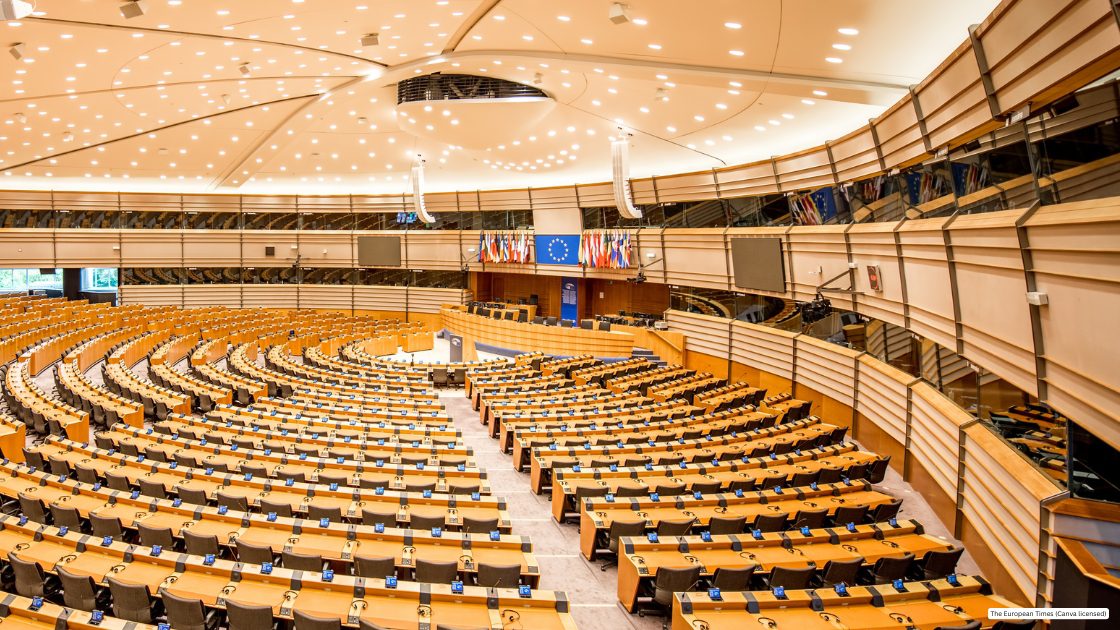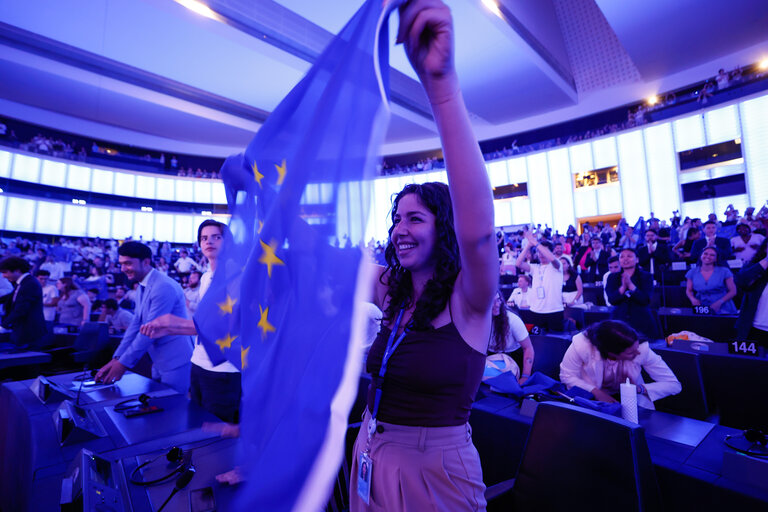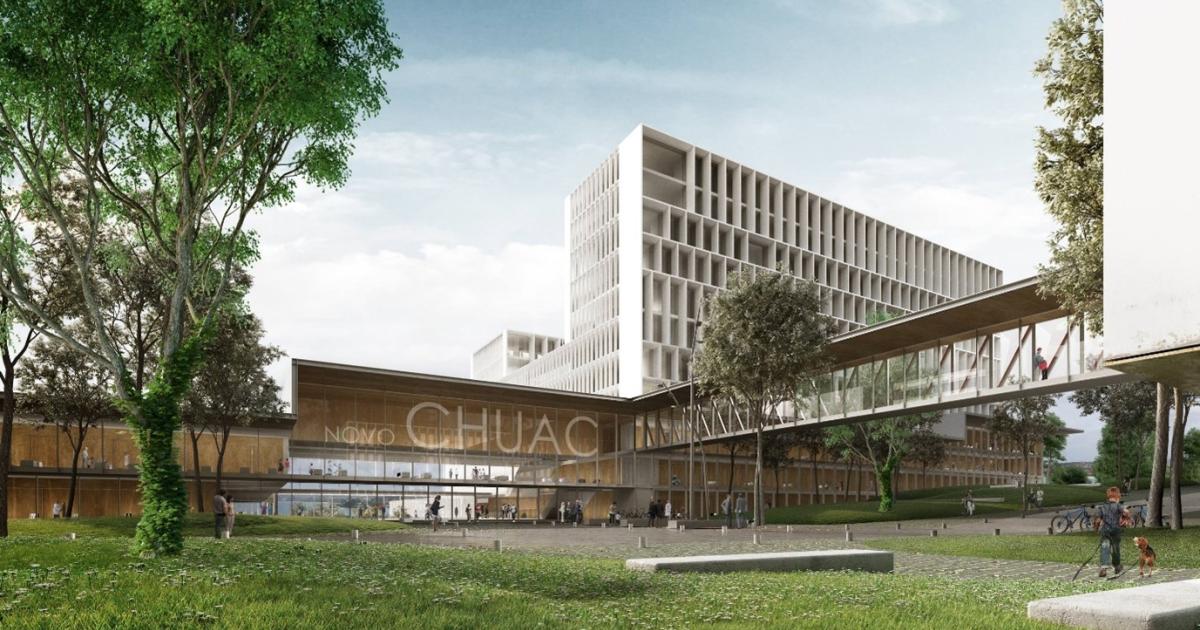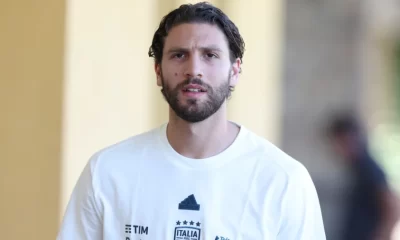Politics
Habemus Rex: From Prince to King: The Journey of Charles III and Camilla to the Crown
After years of anticipation King Charles III was crowned. This marks a new era in the United Kingdom. Many are curious to see what his leadership style and unique perspective will bring for the future of the United Kingdom. Take a closer look at the journey to the throne, and what we can anticipate from his reign.
Early Life and Education Charles III
Charles III Born in Buckingham Palace on November 14, 48, London. He is the oldest son of Queen Elizabeth and Prince Philip, Duke Edinburgh. He attended Cheam School in Berkshire, and Gordonstoun School Scotland. After completing his education he joined the Royal Navy, serving on various ships and subs. He also studied at the University of Cambridge, earning a degree in anthropology and archaeology.
The role of the Prince Of Wales
Charles III, the eldest child of Queen Elizabeth II and the Prince of Wales before he became king, held the title for more than 60 years. During this period, Charles III was involved in numerous public engagements, charitable work and founded The Prince’s Trust to help young people achieve their goals. He was also known for his environmental activism, and for advocating sustainable living. As King, he is expected to continue to prioritize these causes and use his platform in a positive way to impact society.
The Succession of Queen Elizabeth II after her death.
The death of Queen Elizabeth II marked an end to an era for the British monarchy and the beginning of another. She left behind a legacy that was characterized by stability and continuity. Her death triggered the succession process, which led to the coronation her son Charles III. Charles III, despite some controversy and criticisms, has been preparing to be king for most of his adult life. He is expected to bring a unique perspective and priorities to his throne.
The Coronation Of King Charles III
After years of preparation and waiting, the coronation ceremony of King Charles III took place at Westminster Abbey. The event was attended and watched by millions on television by dignitaries around the world. The event was attended by Ursula Von der Leyen of the European Commission, who tweeted that
The Coronation is a testimony to the strength and endurance of the British monarchy. A symbol of continuity and stability.
I congratulate King Charles III and queen Camilla. pic.twitter.com/rhLM9iAFrG
— Ursula von der Leyen (@vonderleyen) May 6, 2023
"The Coronation is a testament to the enduring strength of the British monarchy. A symbol of stability and continuity. My congratulations to King Charles III and Queen Camilla."
Charles III, in his first speech as King, emphasized his commitment towards serving the people of United Kingdom and upholding the traditional and values of monarchy. Many are curious to see what innovations and changes he will make to the role of king during his reign.
Cardinal Nichols, of Westminster, was there and tweeted the following:
What to Expect From the Reign Of King Charles III
Many are curious to see what the reign of the new king will bring. Charles III has already stated his commitment to serve the people of United Kingdom and uphold the traditions of monarchy. He has hinted that he wants to modernize the monarchy and adapt it to the changing times. It is yet to be seen which specific changes he makes, but many people are hoping for a new perspective and new ideas.
Who attended the ceremony?
You can also find out more about the following: Charles III and Camilla are crowned As well as King You can also find out more about the following: Queen The United Kingdom and its other Commonwealth realms The event took place on the 6th of May 2023. Around 2,200 people, including members of royal family and representatives of the Church of EnglandThe United Kingdom and the United States have a number of prominent politicians. Commonwealth of Nations, and foreign royalty and heads of state.[1] Guests from 203 different countries attended the service.[2] dfaf See List of attendees.
What is the future of Queen Camila’s role in the Monarchy?
Speculations abound about the role that Camila, Prince Charles’ wife, will play as Queen. Here are some possibilities.
Many wonder what role Camila will play as Queen when Prince Charles ascends to the throne. There is no standard protocol for the role as Queen consort. However, there are many ways that Camila can contribute to the monarchy.
The Queen Consort’s traditional role.
In the past, the Queen Consort’s role was to support the king and perform ceremonial duties. This could include attending events of state, hosting foreign dignitaries and representing the monarchy in various functions. Camila’s exact role as Queen consort is yet to be determined. However, it is likely she will continue to perform these traditional duties. Camila may have more opportunities to play a more active role in the future, as the monarchy is modernized and times change.
More active participation in public appearances and charitable work.
As the monarchy modernizes, Queen Camila may have more opportunities to be involved in charitable work and public events. This could include championing issues that are important to Queen Camila, attending events and meeting on behalf of her monarchy, and utilizing her platform to raise public awareness for important topics. As the royal family adapts to the changing times there may also be opportunities for Camila to play a larger role in shaping the future monarchy. Only time will reveal what the future holds, but it’s clear that Queen Camila has the potential to have a significant impact.
The impact of public opinion in her role
The public opinion can have a major impact on the role Queen Camila plays in the monarchy. If she is liked and respected by the people, then there may be more opportunities to play a more active part. If she is unpopular, or controversial, then it may be harder for her to have a significant influence. The decision on Queen Camila’s future role will ultimately be made by the royal family, and the Queen, but public opinion is sure to influence their decisions.
Politics
New plan will help EU countries tackle cyber-attacks better


© FRVS+MPCP 2022. The European Times® News is registered as an EU Trademark. All rights reserved. The European Times® and the logo of The European Times® are EU trademarks registered by FRVS+MPCP.
Members/Partners of

About Us
Popular Category
DISCLAIMER OPINIONS: The opinions of the authors or reproduced in the articles are the ones of those stating them and it is their own responsibility. Should you find any incorrections you can always contact the newsdesk to seek a correction or right of replay.
DISCLAIMER TRANSLATIONS: All articles in this site are published in English. The translated versions are done through an automated process known as neural translations. If in doubt, always refer to the original article. Thank you for understanding.
DISCLAIMER PHOTOS: We mostly used photos images that are readily available online, from free sources, or from the people promoting the news. If by any chance it happens that we have used one of your copyrighted photos, please do not hesitate to contact us and we will take it down without question. We do not make profits as this is a not for profit project to give voice to the voiceless while giving them a platform to be informed also of general news, and it is completely free.
Editor Picks
Politics
EYE2025 (European Youth Event): thousands to celebrate the power of democracy | News

EYE2025 (European Youth Event) will be opened by Parliament Vice-president Sabine Verheyen (EPP, DE) on Friday 13 June at 10:00 in the EYE village. Vice-president Nicolae Ştefănuță (Greens/EFA, RO) will take part in a session dedicated to the next long-term budget, on Saturday at 15:00. The closing session, with Vice-president Pina Picierno (S&D, IT), will take place on Saturday at 16:45.
Over the two days, there will be panel discussions with MEPs and other EU decision-makers, as well as with experts, activists and content creators. Debates between MEPs and the young participants will cover climate justice, skills for the future, the EU’s next long-term budget, and freedom of speech and media, among many other topics.
Commissioner for Intergenerational Fairness, Youth, Culture and Sport Glenn Micallef will lead a Youth Policy Dialogue on Friday at 11:00, and take part in a panel discussion on young people’s mental health that afternoon. Executive Vice-President of the Commission, Henna Virkkunen will join in a conversation on how technology can strengthen democracy, on Friday at 15:00.
Other guest speakers are democracy activist Daria Navalnya, the Kayapo Amazonian tribal leader Chief Tau Metuktire and the Mayor of Strasbourg Jeanne Barseghian.
The programme also includes workshops on a wide range of issues that concern young people, from disinformation to housing and migration. Quizzes, tours, artistic performances, storytelling workshops and concerts are other options among more than 450 activities organised for the sixth edition of EYE.
All sessions in the hemicycle will be streamed live on the EYE2025 Facebook page and via Parliament’s Multimedia Centre. More details about the schedule, speakers and activities are available on the European Youth Event website.
Press briefing
On Friday 13 June at 16:30, there will be a press briefing with Vice-president Verheyen on media freedom in the EU, in the Daphne Caruana Galizia press conference room. You can follow it live here.
Source link
Politics
Galician healthcare system receives nearly €510 million in EU support for its modernisation

The European Commission supports the development of the new A Coruña university hospital complex (CHUAC) in the city of A Coruña, located in the Spanish region of Galicia. The grant of nearly €60 million awarded under the Public Sector Loan Facility (PSLF), as part of the Just Transition Mechanism (JTM), complements a loan of €450 million provided by the European Investment Bank (EIB), and Xunta de Galicia’s own resources, bringing the total investment to €600 million.
This social infrastructure project of regional interest aims to expand and modernise the existing hospital complex in A Coruña. It is one of Xunta de Galicia’s major actions to strengthen its public healthcare system. The new hospital complex will include state-of-the-art infrastructure and facilities to provide comprehensive and high-quality healthcare and medical services for patients.
The resulting modern and sustainable healthcare infrastructure will improve the provision of health services and the quality of life of the citizens of Galicia, which in turn will enhance regional convergence with a significant impact on the local economy and employment.
Thanks to this project, around 564 000 people are expected to benefit from more efficient, accessible and quality health services in A Coruña and the surrounding areas. The project is also expected to create an estimated 6 140 direct and indirect jobs related to health infrastructure, representing approximately 1.3% of the employed population in A Coruña. With its energy efficiency measures, bioclimatic architecture, as well as sustainable and smart resources management, the project can substantially contribute to climate change mitigation.
This investment therefore plays a crucial role in mitigating the long-term socioeconomic consequences of the coal-fired plants closures in the region, while promoting a sustainable and an inclusive recovery for Galicia in the context of the region’s ageing demographic and green transitions.
Emma Toledano Laredo, Director at the European Commission (DG REGIO), said:
The European Commission, together with CINEA and the EIB, is very proud to bring the new A Coruña university hospital complex to life thanks to the Public Sector Loan Facility. This green, innovative and people-first project will enhance the provision of healthcare to Galicians, while bringing jobs to the region. This is yet another example of how a just and green transition can bring improvement in all sectors of a regional economy and its people.
Paloma Aba Garrote, Director of CINEA, added:
The new A Coruña university hospital complex is an excellent example of how the Public Sector Loan Facility can support European regions in their transition towards climate neutrality and improve people’s lives. Together with our partners, we are proud to invest in a sustainable and modern healthcare infrastructure, which will provide high-quality and accessible services for Galicians while fostering social cohesion, regional convergence and sustainability.
A spokesperson for the Xunta de Galicia regional government stated:
This project aiming to modernise and expand the A Coruña university hospital complex is a fundamental investment to develop the Galician healthcare infrastructure. Galicia is the first Spanish region to receive support from the Public Sector Loan Facility. Moreover, the new CHUAC project has been awarded the biggest PSLF grant so far, amounting to €59.3 million.
About PSLF
The Public Sector Loan Facility (PSLF) is the third pillar of the Just Transition Mechanism (JTM) – a key tool of the European Green Deal Investment Plan to make sure that no one and no region is left behind in the transition to a climate-neutral economy.
The PSLF combines loans from the European Investment Bank (up to around €6-8 billion) with grants from the European Commission (up to €1.3 billion). The combined support is designed to mobilise additional investments for public sector entities in the regions most affected by the green transition as identified in the Territorial Just Transition Plans, to meet their development needs as they move towards a climate-neutral economy. Each Member State creates these plans to identify the challenges faced by just transition regions, along with their development needs and targets for 2030.
The combination of the European Investment Bank loan and the EU grant will help fund projects that do not generate enough revenues to cover their costs.
PSLF is managed by DG REGIO and implemented by CINEA.
About DG REGIO
The Directorate-General for Regional and Urban Policy (DG REGIO) is the department of the European Commission responsible for EU policies on regions and cities. It develops and carries out the Commission’s policies on regional and urban policy. It assists the economic and social development of the developed and less developed regions across the European Union.
About CINEA
The European Climate, Infrastructure and Environment Executive Agency (CINEA) is an Executive Agency established by the European Commission to implement parts of EU funding programmes for transport, energy, climate action, environment and maritime fisheries and aquaculture. CINEA aims to assist its beneficiaries, establish strong partnerships, deliver high-quality programme and project management, foster effective knowledge sharing and create synergies between programmes – to support a sustainable, connected, and decarbonised Europe.
About the EIB
The European Investment Bank (EIB), whose shareholders are the 27 Member States of the European Union, is the EU’s long-term financing institution. The EIB provides loans to the public and private sectors to support high-quality investments contributing to the achievement of the EU headline targets.
Visit the PSLF webpage on CINEA website to find out more about the Facility and the projects it funds.
-
EU & the World5 days ago
Aurora Borealis Forecast: Where & When to See the Northern Lights Tonight
-

 Sports6 days ago
Sports6 days agoChampions League Final 2024-2025: PSG-Inter, official lineups
-

 EU & the World6 days ago
EU & the World6 days agoRihanna’s Parents: About Her Late Dad Ronald Fenty & Mom Monica Braithwaite
-

 EU & the World6 days ago
EU & the World6 days agoLoretta Swit’s Net Worth: How Much Money the ‘M*A*S*H’ Alum Had
-

 Sports5 days ago
Sports5 days agoOfficial: Damien Comolli new general manager of Juventus.
-

 Sports6 days ago
Sports6 days ago“Pecco Bagnaia is a'shadow”: the'former driver celebrates Marc Marquez
-

 EU & the World6 days ago
EU & the World6 days agoTaylor Swift’s Net Worth: How Much Money She Has in 2025
-

 Sports4 days ago
Sports4 days agoManuel Locatelli forced to leave Italy's training camp








